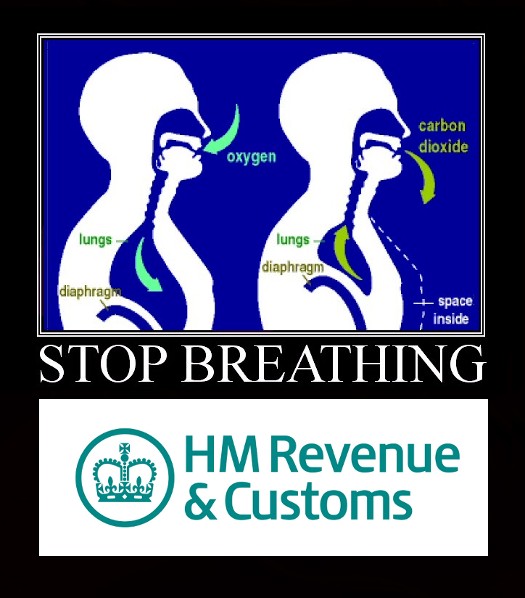 Mention, death and taxes in the same phrase and people automatically think of Benjamin Franklin’s famous quotation:
Mention, death and taxes in the same phrase and people automatically think of Benjamin Franklin’s famous quotation:
“Our new Constitution is now established, and has an appearance that promises permanency; but in this world nothing can be said to be certain, except death and taxes.” In a letter to Jean-Baptiste Leroy, 1789.
However, Franklin’s letter is not the origin of the phrase, which appeared earlier in Daniel Defoe’s, The Political History of the Devil 1726.
“Things as certain as Death and Taxes, can be more firmly believ’d.”
It is interesting therefore that HM Government along with other governments has decided that it is a GOOD thing to tax that life giving gas, CO2!
As British Gazette readers in the UK will only be too painfully aware, Chancellor of the Exchequer George Osborne presented his “Summer Budget” to Parliament on Wednesday 8th July 2015. Along with most others, your Editor tuned in to the speech to find out how it would affect him. Personally. A clear answer was not initially forthcoming as his announcement about the reform of dividend taxation was somewhat opaque. The reason for this lack of clarity was soon however apparent as this Tory Chancellor, keen to keep his core vote – comfortably off pensioners – happy, did not want to draw too much attention to this at the time he was announcing future reductions in child tax credit – a cut which will affect Labour voting low income families.
Upon discovering that I was not going to be adversely affected until the fourth quarter of 2021 – when I will receive the first payment of the State Pension into my bank account – I had a decision to make.
Up to this point in time I have not taken out an ISA (Individual savings Account) for the simple reason that there was no benefit to me given my personal financial circumstances. This will still be the case until 5th April, 2021. However, any dividends paid to me through such a tax wrapper after this date will cause my tax bill to be deducted.
I was therefore faced with a decision: Should I decant a proportion of my shareholdings into an ISA for the next six years? There will be NO immediate benefit after all.
Initially I thought that I would not bother. Decanting involved hassle and costs – one had to sell the shares and then repurchase same as well as pay the Stamp Duty and ISA setup costs. After all, I get by – modestly – and the receipt of an additional income (circa. £8,000) will be a very pleasant bonus that can be spent on some very nice holidays.
But then the other day the DVLA sent Form V 11 through the post!
This is to tax my car.
It is a very modest automobile. It is a 06 Reg Kia Magentis 2.0 LE. It is a reliable four door saloon car totally lacking in pretension. I however like it. In my opinion it scores over the Ford Mondeo in not being a 5 door hatchback. The problem with a hatchback is that on a cold day – and yes we do get them from time to time in Cornwall – all the warm air literally flies out of the door when you put the shopping in! It is also a lot cheaper. It is a front wheel drive transverse engined vehicle with a 4 cylinder DOHC 16 value EFI petrol engine.
Unfortunately, this engine does NOT sound like the 2 litre 4 cylinder DOHC 16 value EFI found in the Alfa Romeo Spider! It IS however more reliable!
My problem however is with another aspect of this engine: Its CO2 output. The DVLA have recorded this engine as having a CO2 output of 204 grams per kilometre. That is 11.58066 ounces per mile. This apparently is a problem!
Whilst not a problem for Planet Earth, the Chancellor has made it a problem for me as the DVLA insist on delivering a tax demand of £290 based on this figure! Since the car is worth £580 this is equivalent to half its value!
Since this figure is based on a nonsensical assumption, I feel at liberty to avoid some tax.
Of course, an EQUITABLE system of car tax would be to tax the car on an assessment of its value.
We suggest this:
VED upon purchase: 2.5% of invoice. For a £30,000 car = £750
VED end year 1: three quarters of initial VED. For a £30,000 car = £562.50
VED end year 2: two thirds of initial VED. For a £30,000 car = £500
VED end year 3: half initial VED. For a £30,000 car = £375
VED end year 4: one third initial VED. For a £30,000 car = £250
VED end year 5: one quarter initial VED. For a £30,000 car = £187.50
VED end year 6: one fifth initial VED. For a £30,000 car = £150
VED end year 7: one tenth initial VED. For a £30,000 car = £75
VED end year 8: one twelfth initial VED. For a £30,000 car = £62.50
VED end year 9: Flat Rate £50
Thus for all cars over 10 years old, a flat rate of £50 would be applied.
Speaking the Truth unto the Nation
